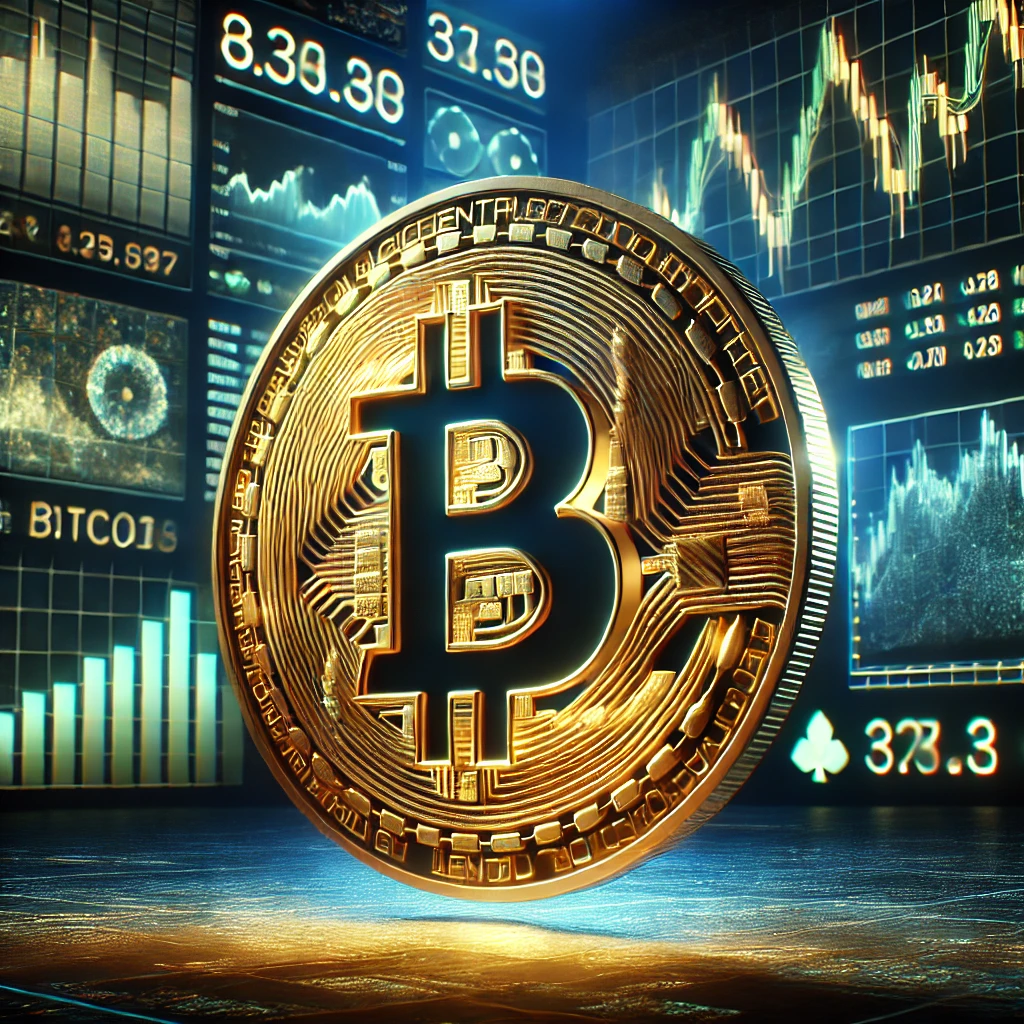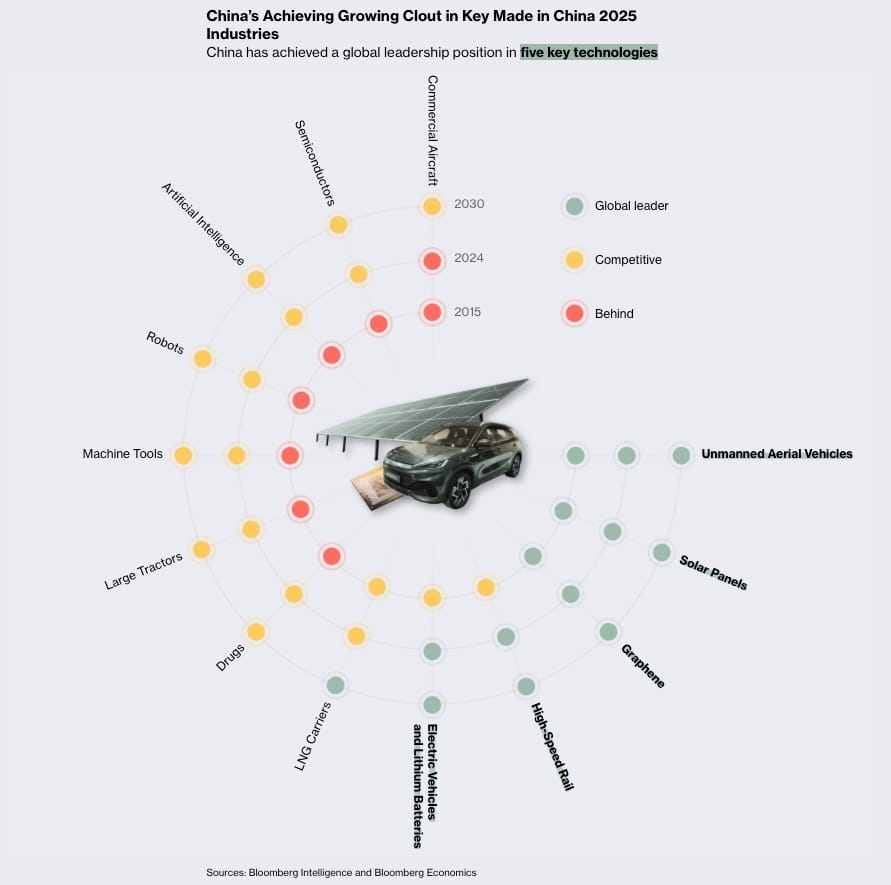October 31 2024
Big Money backs Trump; US consumer confidence up; Record gold demand; OpenAI custom chips; US containment of China failing

1. Big Money Backs Trump, Despite Promising Not to After 2020
2. US Consumer Confidence Surges to Highest Level Since 2021
3. Gold Demand Reaches Record High as Geopolitical Tensions Drive Prices
4. OpenAI to Develop Custom Chips to Support AI Growth, Scaling Back Foundry Plans
5. US-China Trade War: Washington's Containment Strategy Failing
October 31, 2008: Satoshi Nakamoto publishes a paper introducing Bitcoin
See the new Ad Astra Podcast! Released on Apple and Spotify around 10a CST.
1. Big Money Backs Trump, Despite Promising Not to After 2020
More than 100 major companies vowed to cut off campaign funding for the 147 Republican congressmen who voted to decertify the election result in 2020 or persisted in claiming that Joe Biden had stolen the election. This corporate pledge has been comprehensively ignored. An analysis of campaign finance records by Accountable.US shows that Amazon, Intel, Pfizer, Raytheon, Lockheed Martin, Oracle, Goldman Sachs, Allstate, General Motors, Ford, Boeing, GE, ADM, AT&T, J&J, Tyson, Walmart and Home Depot, among others, have since funnelled money to election deniers after saying they would not do so. ProPublica says the percentage that goes to deniers makes up 75pc of total political funding for Alcoa, 62pc for Cheniere Energy, 57pc for NRG Energy, 40pc for ADM and 38pc for American Electric. Most oil majors never made the pledge in the first place.
Article Source: Telegraph
2. US Consumer Confidence Surges to Highest Level Since 2021
American consumers are feeling quite a bit more confident this month as Election Day approaches, a business research group says. The Conference Board said Tuesday that its consumer confidence index jumped to 108.7 in October from 99.2 in September. It was the biggest monthly gain since March of 2021. Analysts forecast a more modest reading of 99.3. The consumer confidence index measures both Americans’ assessment of current economic conditions and their outlook for the next six months.
Article Source: AP
3. Gold Demand Reaches Record High as Geopolitical Tensions Drive Prices
Investors’ “fear of missing out” on gold’s rally has sparked record demand for the precious metal, even as high prices push central banks to scale back their purchases. The value of global demand passed $100bn for the first time in the third quarter of this year, according to industry body the World Gold Council, driven mainly by investor buying. The volume of global gold demand also rose to a record in the same period, up 5 per cent to 1,313 tonnes. The rush has helped drive the price of the yellow metal up 34 per cent this year and pushed it to a series of record highs, amid concerns about conflict in the Middle East and Ukraine, and as central banks diversify away from the US dollar and western economies start cutting interest rates. Gold prices hit a new high on Wednesday of $2,788 a troy ounce.
Article Source: FT
4. OpenAI to Develop Custom Chips to Support AI Growth, Scaling Back Foundry Plans
OpenAI is working with Broadcom and TSMC to build its first in-house chip designed to support its artificial intelligence systems, while adding AMD chips alongside Nvidia chips to meet its surging infrastructure demands, sources told Reuters. OpenAI, the fast-growing company behind ChatGPT, has examined a range of options to diversify chip supply and reduce costs. OpenAI considered building everything in-house and raising capital for an expensive plan to build a network of factories known as "foundries" for chip manufacturing. The company has dropped the ambitious foundry plans for now due to the costs and time needed to build a network, and plans instead to focus on in-house chip design efforts, according to sources, who requested anonymity as they were not authorized to discuss private matters. The company's strategy, detailed here for the first time, highlights how the Silicon Valley startup is leveraging industry partnerships and a mix of internal and external approaches to secure chip supply and manage costs like larger rivals Amazon, Meta, Google and Microsoft. As one of the largest buyers of chips, OpenAI's decision to source from a diverse array of chipmakers while developing its customized chip could have broader tech sector implications.
Article Source: Reuters
5. US-China Trade War: Washington's Containment Strategy Failing
Since Donald Trump hit Xi Jinping’s government with punitive tariffs in 2018, his push to cut the trade deficit has snowballed into a full-scale bipartisan effort to stop China from becoming the world’s biggest economy and obtaining technology that threatens American military superiority. At a glance, the campaign appears successful. China’s economy is no longer on pace to overtake the US and is actually falling further behind. Its tech giants face difficulty obtaining advanced chips to develop artificial intelligence. And US allies are complying with requests to deny China access to the best chip-making equipment, including one-of-a-kind machines from Netherlands-based ASML Holding NV. But despite more than six years of US tariffs, export controls and financial sanctions, Xi is making steady progress in positioning China to dominate industries of the future. New research by Bloomberg Economics and Bloomberg Intelligence shows that Made in China 2025 — an industrial policy blueprint unveiled a decade ago to make the nation a leader in emerging technologies — has largely been a success. Of 13 key technologies tracked by Bloomberg researchers, China has achieved a global leadership position in five of them and is catching up fast in seven others. That means the world outside the US is increasingly driving Chinese electric vehicles, scrolling the web on Chinese smartphones and powering their homes with Chinese solar panels. For Washington, the risk is that policies aimed at containing China end up isolating the US — and hurting its businesses and consumers.

Article Source: Bloomberg
October 31, 2008: Satoshi Nakamoto publishes a paper introducing Bitcoin
On October 31, 2008, Satoshi Nakamoto, the mysterious and anonymous inventor of Bitcoin, released the Bitcoin white paper, introducing the cryptocurrency—and how it could be used—to the world. By design, only 21 million Bitcoins will ever be "mined," or released into the market.
Sources
1. https://www.telegraph.co.uk/business/2024/10/29/big-money-complicit-unravelling-american-democracy/
2. https://apnews.com/article/consumer-confidence-inflation-economy-conference-board-e40f894edf5be2687114c344d95c8c63
3. https://on.ft.com/3C1SsbV
4. https://www.reuters.com/technology/artificial-intelligence/openai-builds-first-chip-with-broadcom-tsmc-scales-back-foundry-ambition-2024-10-29/
5. https://www.bloomberg.com/graphics/2024-us-china-containment/?srnd=homepage-americas
